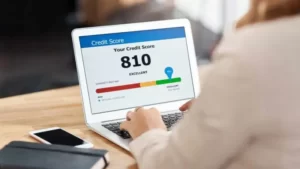As a new immigrant, establishing a credit history and improving your credit score is an important step towards achieving financial stability in your new country. A solid credit history can open doors to various financial opportunities, including obtaining loans, renting an apartment, or even starting a business.
However, building credit from scratch can be a challenge when you are new to the country and have limited or no credit history. In this article, we will provide you with actionable tips on how to build credit and improve your credit score as a new immigrant.
Understand the Credit System
Before diving into credit-building strategies, it’s essential to understand how the credit system works in your new country. Familiarize yourself with the local credit bureaus, credit scoring models, and the factors that influence your credit score.
In many countries, credit scores are determined by factors such as payment history, credit utilization, length of credit history, types of credit, and new credit applications.
1. Obtain a Social Security Number or Equivalent Identification
To build credit in many countries, you will typically need a social security number or an equivalent identification number. This number is crucial for establishing your identity and creditworthiness. Contact the appropriate government agency in your new country to obtain the necessary identification.
2. Open a Bank Account
Opening a bank account is an essential first step towards building credit. It demonstrates financial stability and provides a foundation for other credit-building activities. Start by researching different financial institutions and their account offerings. Consider opening a checking or savings account that suits your needs and preferences.
3. Apply for a Secured Credit Card
A secured credit card is an excellent tool for building credit, especially when you have limited or no credit history. With a secured credit card, you make a deposit as collateral, which then becomes your credit limit.
Use the card responsibly, making small purchases and paying off the balance in full and on time each month. Over time, this demonstrates your creditworthiness and helps establish a positive credit history.
4. Become an Authorized User
If you have family or close friends with good credit, ask if they would consider adding you as an authorized user on one of their credit cards.
By doing so, you can benefit from their positive credit history and responsible credit usage. Ensure that the primary cardholder maintains low balances and pays their bills on time to maximize the impact on your credit.
5. Explore Credit Builder Loans or Programs
Some financial institutions offer credit builder loans or programs designed to help individuals build credit. These loans work by having you make regular payments into a dedicated account, and once you complete the program, you receive the funds with the added benefit of a positive credit history.
6. Pay Bills on Time
Consistently paying your bills on time is one of the most crucial factors in building good credit. This includes rent, utilities, and other monthly payments. Consider setting up automatic payments or reminders to ensure you never miss a payment.
7. Apply for a Small Installment Loan
If you have the means, consider applying for a small installment loan from a reputable lender. These loans require you to make regular payments over a specific term, helping demonstrate your ability to manage different types of credit.
8. Monitor Your Credit Report
Regularly monitor your credit report to stay informed about your credit status and to detect any potential errors or fraudulent activity. Request a copy of your credit report from the local credit bureau and review it for accuracy. If you find any discrepancies, report them immediately and work towards resolving the issues.
9. Maintain a Low Credit Utilization Ratio
Credit utilization, the amount of credit you’re using compared to your total credit limit, is an important factor in your credit score. Aim to keep your credit utilization ratio below 30%. To achieve this, keep your balances low and consider making multiple payments throughout the month to reduce your reported balance.
10. Diversify Your Credit Mix
Having a diverse credit mix can positively impact your credit score. Aim to have a mix of different types of credit accounts, such as credit cards, loans, or a mortgage, as long as you can manage them responsibly. However, be cautious not to take on more credit than you can handle.
11. Be Patient and Persistent
Building credit takes time and persistence, especially when you are starting from scratch. Be patient and continue practicing good financial habits. Consistently pay your bills on time, keep your credit utilization low, and avoid unnecessary debt. Over time, these responsible behaviors will contribute to a positive credit history and an improved credit score.
12. Seek Professional Guidance
Consider seeking professional guidance from credit counseling organizations or financial advisors who specialize in assisting new immigrants. They can provide personalized advice based on your specific circumstances and help you navigate the credit-building process effectively.
Final Thoughts
Building credit and improving your credit score as a new immigrant requires patience, persistence, and responsible financial management.
By following these tips and strategies, you can establish a solid credit history, demonstrate your creditworthiness, and open doors to various financial opportunities in your new country.
Remember to stay informed, monitor your credit, and maintain good financial habits to ensure long-term success in building and maintaining a strong credit profile.



